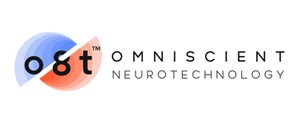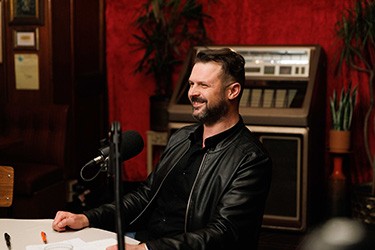How was this content?
Unlocking the human brain with the power of Artificial Intelligence

“The cloud has been a revolution for healthcare and neuroscience, with a lot of really good services for dealing with patient data, patient health records, and image processing.”
There are few greater mysteries in the world than the workings of the human brain.
For neurosurgeons, the brain presents a perplexing tangle of physical tissue and electrical impulses – difficult to understand, and even more difficult to fix when something goes wrong.
Now, however, an Australian startup is using the cloud to help neurosurgeons navigate this most complex of human organs using innovative brain mapping technology.
Omniscient Neurotechnology is the brainchild of the esteemed neuroscientists and neurosurgeons Dr. Stephane Doyen and Dr. Michael Sughrue.

Through their careers, they often encountered the challenge of limited treatments for common conditions such as stroke and mental health issues, and were determined to find new ways to tackle these and other ailments at a neurological level.
“The brain is a complex electrical computer, and current imaging misses the electrical information,” Dr. Doyen says. “For a surgeon, you have a huge risk of cutting something you don’t intend to.”
Dr. Doyen says he’s fascinated with how the brain processes information. So, 20 years ago, he began researching data-driven approaches to brain analysis. However, he found the data processing technology of the day could not match the massive complexity of the human brain.
The desire to overcome this challenge led him to explore the emerging field of artificial intelligence (AI) as a potential solution to this data processing challenge.
“I was doing a lot of AI work and was well paid and enjoyed it, but my neuroscience love was in the background,” Dr. Doyen says.
It was in 2018 he connected with Dr. Sughrue, who shared his frustration.
The two quickly combined their experience and began working in connectomics – a data-driven approach to constructing and analyzing a computer-generated map of the brain's functional and structural connections.

Using the computing power of Amazon Web Services (AWS), they developed a method of converting data from MRI brain scans into a three-dimensional (3D) map of the electrical activity of the human brain.
The result is the surgical planning tool Quicktome, which provides neurosurgeons with a detailed map of the brain’s activity, known as a connectome, which is specific to each patient.
This allows surgeons to better plan treatments – especially those involving surgical intervention – in ways that won’t harm healthy brain functions.
Dr. Doyen explains how Quicktome works when treating a patient with a brain tumour.
“We help surgeons know what they are doing so they can make better decisions,” Dr Doyen says. “The patient receives an MRI scan, and we take the image of their brain and send that to the cloud, where we create a detailed map. We look at the tumor and what can be done, and bring in the brain map to plan the surgery, highlighting key structures of the brain and what approach a doctor can take.”
Doyen and Sughrue have built a company that now employs more than 150 people globally and is working with some of the world’s foremost clinics and neurosurgeons, including New York’s Westchester Medical Centre.
Through doing so, Omniscient Neurotechnology is paving the way for new treatments for a wide range of brain conditions and disorders, including those relating to mental health. This is due in part to the principle of brain plasticity, which refers to the brain’s ability to change its configuration because of external influences.
“Mental health is a major issue, and one-fifth of people each year will have some mental trouble,” Dr. Doyen says. “Using Quicktome, we can see mental health issues, and diagnose them, and also follow up on how treatments are working. We can even use it to reconfigure the brain and elevate its state. That ability is extremely useful, and there are stories of people getting better without taking a pill by reconfiguring the brain.”
Dr. Doyen says the relationship with AWS has been important for both for delivering the computing power that Omniscient Neurotechnology’s brain mapping technology needs, and through helping with developing the complex algorithms needed to process such vast quantities of data.
“The cloud has been revolutionary for healthcare and neuroscience, with a lot of great services for dealing with patient data, patient health records, and image processing,” Dr. Doyen says. “A lot of projects like these don’t make their way to the doctor’s office, because of all the challenges you have to navigate and document, but we did it successfully.”
AWS Services Used
Amazon EC2
Amazon Elastic Compute Cloud (Amazon EC2) is a web service that provides resizable compute capacity in the cloud. It is designed to make web-scale cloud computing easier for developers.
Amazon EBS
Amazon Elastic Block Store (Amazon EBS) is an easy-to-use, scalable, high-performance block-storage service designed for Amazon Elastic Compute Cloud (Amazon EC2).
Amazon VPC
Amazon Virtual Private Cloud (Amazon VPC) gives you full control over your virtual networking environment, including resource placement, connectivity, and security. Get started by setting up your VPC in the AWS service console.
Amazon Aurora
Amazon Aurora provides built-in security, continuous backups, serverless compute, up to 15 read replicas, automated multi-Region replication, and integrations with other AWS services.
How was this content?